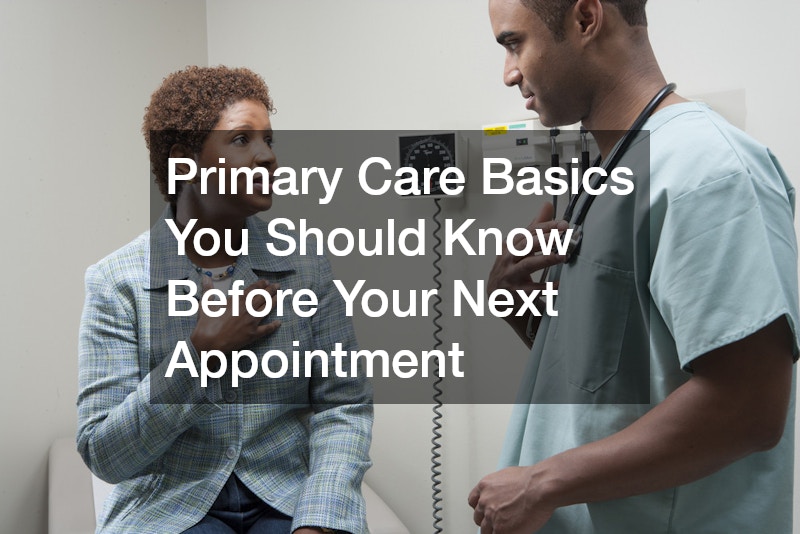
This article aims to equip you with fundamental knowledge about primary care, ensuring that you feel prepared and informed before your next appointment.
Primary care is defined as the initial point of contact for a patient within the healthcare system. A primary care provider (PCP) is typically a physician, nurse practitioner, or physician assistant who helps manage a patient's overall healthcare needs.
Video Source
This aspect of healthcare is crucial as it promotes continuity of care and fosters a strong doctor-patient relationship.
The importance of primary care lies in its role as a gatekeeper to specialized healthcare. When patients have access to a reliable PCP, they can receive timely screenings, diagnoses, and treatment plans which can lead to better health outcomes. Primary care providers often have a comprehensive understanding of a patient’s medical history, enabling them to give more personalized care.
In addition to treating common illnesses, primary care providers are essential for preventive care. They can guide patients in making lifestyle changes, such as diet and exercise, to enhance overall wellbeing. Research indicates that individuals who have a dedicated PCP tend to experience fewer hospitalizations and shorter hospital stays, showcasing the effectiveness of primary care in the healthcare continuum.
Selecting the right primary care physician is critical to ensure a positive healthcare experience. Factors to consider include the physician's credentials, areas of expertise, and their approach to patient care. You may want to look for a PCP who specializes in your specific health concern or has experience dealing with your demographic group.
Personal comfort with your physician is another essential element to ensure effective communication and trust. You should feel at ease discussing your health concerns openly with your PCP. It's often helpful to read reviews and ask for recommendations from friends or family to gauge a provider’s bedside manner and reliability.
Additionally, consider logistical factors such as location, office hours, and whether the physician accepts your health insurance. Accessibility can significantly impact your ability to attend regular check-ups and follow-up appointments, which are vital for maintaining good health. Take the time to do your research and meet with potential PCPs to find the best fit for your healthcare needs.
Preparation is key for a successful primary care visit. You should bring a valid form of identification, insurance card, and any necessary co-payments. Furthermore, gathering relevant medical documents, such as lab results or previous medical records, can provide important insights that assist your PCP in making informed decisions regarding your care.
Your medical history is a crucial component of your appointment. Be prepared to discuss any ongoing medications, impressive allergies, and past surgeries or hospitalizations. Creating a list of previous and current medical problems allows you to provide the most accurate and comprehensive information to your primary care provider.
Lastly, formulate a list of questions or concerns you want to address during your visit. Whether it’s about a specific health issue or general wellness tips, having a written list ensures that you won't forget important points during your appointment. Taking charge of your health by preparing ahead can significantly enhance your experience with your primary care physician.
Understanding what to expect during your primary care visit can help alleviate any anxiety related to the appointment. Typically, the visit will begin with a review of your medical history and current health concerns. Your physician will likely ask about your lifestyle habits, such as diet and exercise, as they relate to your overall health.
A physical examination is another standard aspect of a primary care appointment. Depending on your needs, your primary care provider might conduct the necessary tests, such as blood pressure checks or blood tests. Important screenings may also be included as part of your visit, allowing the provider to catch any potential health issues early on.
After evaluating your condition, your PCP may recommend treatment options or referrals to specialists if required. They will outline a follow-up plan, ensuring you know when to return for additional visits or tests. Communication and collaboration are key, as these discussions lay the foundation for a strong, ongoing relationship with your primary care provider.
Understanding these basics will help you make the most of your primary care visits, leading to better health outcomes and a more collaborative relationship with your healthcare provider.
